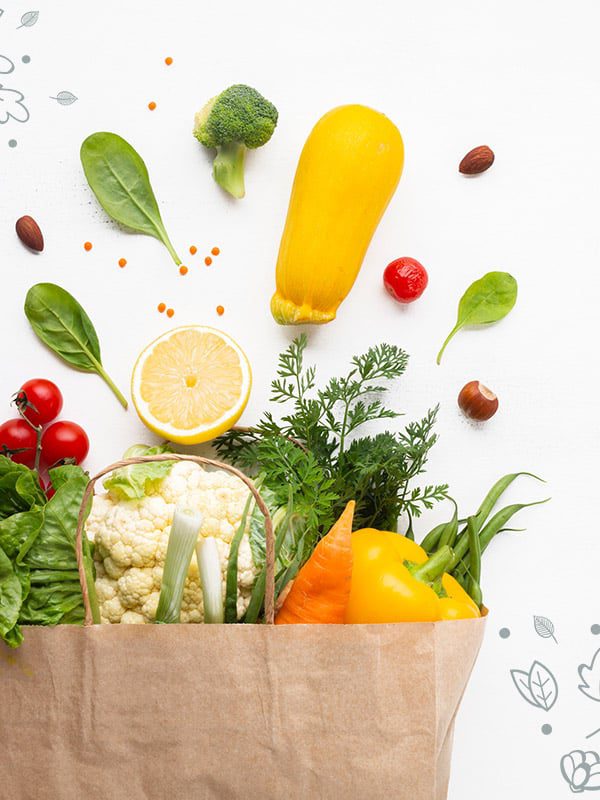With another viral quarantine occurring soon, a rise in unemployment and debt, and a potential, destructive race war that looks imminent, most of us will struggle, especially economically.
So, we need to save money in any way we can for the long term, as the 2020’s will be an interesting decade.
In this article, I’ll be showing you seven things you should get and use that will actually save you money in the long term, and perhaps even make money down the line.
No, this won’t be obvious stuff like get a high interest savings account or look for deals.
Cameras

The first thing you should get are cameras; specifically, dashcams and home security cameras.
With a lot nefarious people out there who want to harm you, steal your possessions, and cause you a lot of trouble in general. You will need some evidence to protect yourself and prosecute others.
A security camera, installed in your house, can help deter negative behaviors from suspects, determine how your property and possessions were damaged, and acknowledge who is the criminal.
It can also help resolve disputes and protect you from legal actions, which will save you lots of money in the process. The same situation can be applied to dash cams in your vehicle.
In fact, unlike your home, there are situations that occur way more often and are way more costly while driving on the road.
Having a dash-cam will help with insurance claims and record people vandalizing your car, and thus, I recommend getting a security camera and a dashcam for the peace of mind.
Speaking of homes, the second thing to get if you’re a home owner are solar panels. These are great for keeping the environment clean and healthy.
But, they also have the ability to save you lots of money and even make some extra cash on the side.
Sun’s Energy

With the sun’s energy being free and modern panels converting the sun’s rays more efficiently than earlier ones, you could potentially power your whole house without paying your electricity bill, and on top of that, you could sell off the unused electricity back to the power companies if you don’t consume much electricity.
If you think that’s neat, there’s more!
In some countries like the US for example, there are tax incentives to install and utilize solar panels. Pretty neat, right?
While this is nice, there are some caveats to note. Solar panels are very expensive upfront to set up.
Usually, they’re between $11,000 to $17,000 depending on the panel and what your power consumption needs are.
You will need some space on your roof or in your backyard for the panels to receive the best amount of sun rays, as well.
If you are handy, you could install the panels on the roof of your house and wire it up to your electrical system without paying a professional.
But if not, you will need to hire someone, which can further increase the costs.
For those of you who want to sell your excessive electricity back to the grid, you will need to check with your electricity provider and local laws because not all areas allow you to do that.
If you are fine with those caveats, you will see a return on investment after many years of installation.
I personally will be doing this once I buy my own house and I recommend you do this as well when you get yours.
Garden

With self-sustaining electricity in mind, the third thing is having a garden for growing food. With the pandemic affecting the food suppliers, distributors, and resellers, there will be an increase in food prices when the eventual shortage happens.
So, growing your own food will heavily cut down your dependence and expense as a result.
If you have excessive food left over, you can sell it for additional money, or store it. There are some huge caveats to note if you do choose to pursue this.
Setting up a produce garden will require a lot of time and effort, and has a huge upfront cost as well, depending on your location and the cost of the of the gardening equipment.
Another thing is, unlike solar panels, you cannot just set it and forget it because of your busy lifestyle or else your plants will die.
Also, not all locations may be able to grow certain kinds of plants due to the weather not matching the plant’s agricultural requirements.
If you have the patience for gardening and are clear of these caveats, you should see about a 30% cut in your grocery bills on average.
For example, if your monthly bill is $700 per month (or $8400 per year). Cutting it down 30 percent will make it $490 per month (or $5880 per year).
Anyways, as long as you keep your plants alive, you will get free food and have less dependence on the system.
Kitchen appliances

And speaking of growing your own food, the fourth thing that can save you money is having kitchen appliances like coffee makers, pots, utensils, etc.
Instead of buying coffee or taking out food constantly, why not make it yourself?
It’s cheaper in the long run and teaches valuable skills like how to cook, how to clean, how to operate a kitchen, and more.
If operating a stove scares you, appliances like the instant pots can be used instead since they are safer and easier to use.
Most people may not think it’s a big deal to buy food outside since it’s generally cheap. but, a lot of these people don’t realize it all adds up after awhile.
For example, a $3 cup of coffee may seem cheap when you buy it once, but it can add up to $90 within a month if you bought it everyday.
That’s $90 that could have been spent on something else, and this is why I recommend getting kitchen equipment to make your own food at home.
Refillable water bottles

The fifth thing that can save yourself lots of money is using refillable water bottles, that are made of metal.
Buying bottled water is a huge waste of money unless you reuse the bottle afterwards, but most people throw it away after one use, which pollutes the environment.
Not to also mention the fact that reusing plastic bottles is unhealthy since plastic melts. Hence, why I recommend a refillable canister made of metal.
Going back to the topic, drinking tap water is significantly cheaper than bottled water.
For example, tap water cost about $2.10 for 1 CCF, which is 100 cubic feet basically. 1 CCF converts to 748 gallons of water. You can only imagine the cost of just 1 gallon.
Meanwhile one bottled water, which is 8 fluid ounces costs $1-2, depending on the brand. It takes 128 fluid ounces to make a gallon, so that means that you’d need to buy 16 bottles of bottled water, which will be between $16 and $32.
So, you’re paying way too much for bottled water!
Now, if you are going to use tap water, you need to install a water filter system.
I mention that tap water contains chemicals, like fluoride, which can have adverse effects on your mind.
Most water filters can help decrease or even eliminate such harmful chemicals in your water supply.
Thus, keeping you healthy and avoiding expensive health problems down the line.
Buying stock

This sixth thing is probably the most talked topic, but it’s a great way to save money and it’s very profitable: that is buying stock.
There are many ways to invest in the stock market, but some can produce HUGE amounts of money over time if you invest in the good assets.
Be careful though when buying stock and do your research!
It’s easy to buy a bunch of random stocks that you know nothing about and lose money, so make sure you buy and sell wisely, which is why I actual recommend Index funds that pay dividends as great options for beginners since they’re generally more stable than the average individual stock.
I recommend Robinhood since it’s commission free and offers fractional shares so you don’t need to have to buy the whole share if you don’t have enough money.
I personally use it for buying my stock and I like it, so I recommend you check it out.
Library card

Last but certainly not least, get a library card, which is the seventh thing.
Library cards are a great way to save lots of money since you can temporarily check out books, movies, CD’s, and video games instead of buying them, which is great when the content you rent is terrible.
Technically, you’re indirectly paying for your local library through your tax money, so why not take advantage of this largely unused resource?
These are the things that could save you lots of money in the long run. So, do you have any of these stuff?
Is there more things out there that I didn’t mention?











